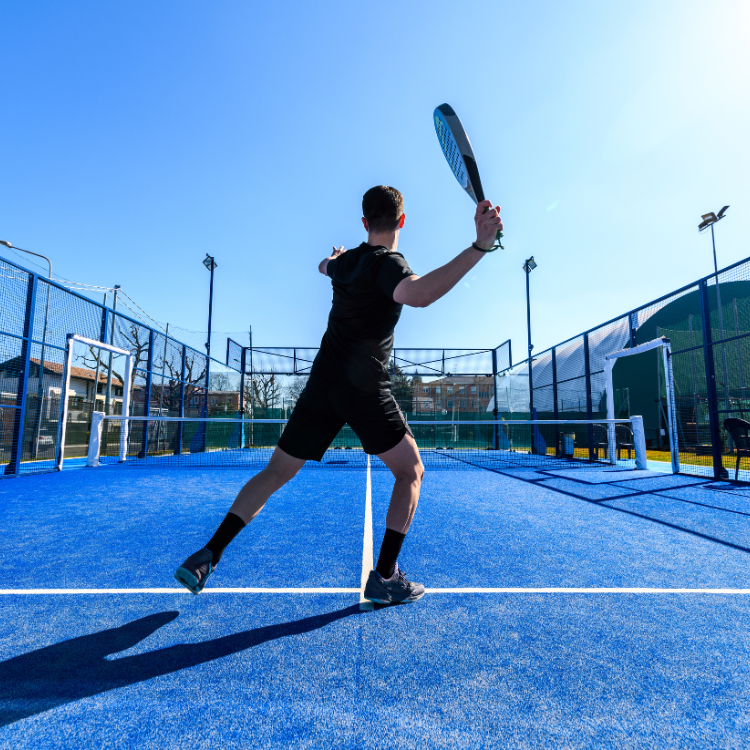
Does the Shape of a Padel Racket Really Matter? Here’s What You Need to Know
By Padel Box Pro – Where Performance Meets Precision
One of the most common questions we hear is: “Does the shape of your padel racket actually affect your game?”
Short answer: Yes—but it’s not the full story. While the shape of your racket plays a role in how it performs, it’s just one of several important factors you should consider before buying. Let’s break it all down so you can find the right shape—and racket—for your playing style.
In This Article
The 3 main padel racket shapes explained
Does shape really make a difference?
How modern racket technology changes the game
What really matters more than shape
Padel Box Pro buying tip: feel before form
Final verdict: shape vs. performance
Our top rackets by shape (with buy now links)

The 3 Main Padel Racket Shapes
Most padel rackets fall into one of these three shapes:
Diamond-Shaped Rackets
Balance: High (weight is distributed toward the top)
Sweet Spot: Small and higher up
Best for: Aggressive players looking for maximum power
Trade-off: Less forgiveness on off-centre hits
Teardrop-Shaped Rackets
Balance: Mid-level
Sweet Spot: Centred and moderately sized
Best for: All-round players who want a balance of power and control
Trade-off: Doesn’t specialise in one area, but very versatile
Round-Shaped Rackets
Balance: Low (more weight near the handle)
Sweet Spot: Large and centred
Best for: Beginners or control-focused players
Trade-off: Less raw power, but more forgiving and arm-friendly
Do Padel Racket Shapes Really Make That Much of a Difference?
Here’s where it gets interesting. In theory, the shape impacts balance, weight distribution, and sweet spot placement . But modern padel rackets are complex—materials, core density, surface texture, and even paint layers affect performance just as much as shape.
Even two rackets with the same shape can feel totally different depending on:
Carbon fibre grade or mix
Foam core density (EVA vs hybrid cores)
Protective elements like frame guards
Grip shape and throat design
Bottom line
Shape matters , but it’s not everything. You can’t rely on shape alone to determine how a racket will feel or respond.
What’s Changing in Modern Padel Rackets?
Brands are evolving, fast.
Many rackets today are built with hybrid shapes —like oversized teardrops or round-diamond blends—to give you the best of both worlds. They're designed to tweak balance, expand the sweet spot, or enhance spin and feel.
Some key innovations affecting racket performance:
Multilayer face materials for better ball contact
Surface finishes (frosted, rough, or glossy) that influence spin
Weight distribution tech inside the frame
Built-in dampening or anti-vibration systems
That means a round racket from Brand A might play very differently than a round racket from Brand B.
So, Should You Worry About Racket Shape?
Yes— but not in isolation . Instead of focusing solely on shape, consider the full spec sheet:
Weight – Can you control it for an entire match?
Balance – Do you like a head-heavy or handle-heavy feel?
Core stiffness – Want more power or comfort?
Materials – Carbon, fibreglass, or a mix?
Feel – What actually feels right when you swing it?
Padel Box Pro Tip: Always Try Before You Buy
Whenever possible, test the racket before committing . What looks great on paper might feel awkward in your hand—or perfect, even if it’s not your usual shape.
If you can’t test it first, look for honest reviews, verified specs, and detailed descriptions that go beyond the marketing hype.
Shape Plays a Role, But Feel Is Everything
Yes, the shape of your padel racket does make a difference , but it’s not the only factor—and it shouldn’t limit your choices. Whether you're a power player chasing a diamond frame or a beginner loving the forgiveness of a round racket, what matters most is how the racket feels in your game .
Don’t get boxed in by shape alone. Consider your goals, skill level, and playing style—and let the full design guide your decision.
